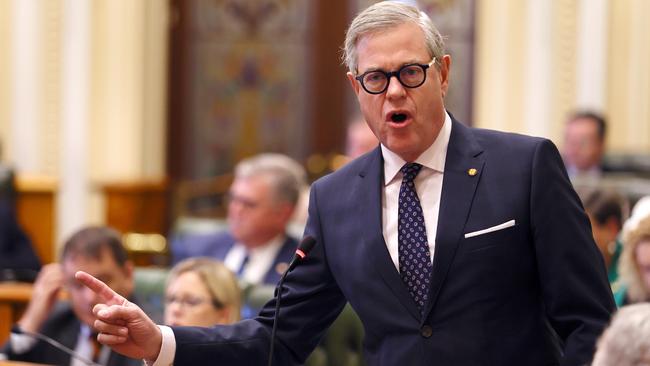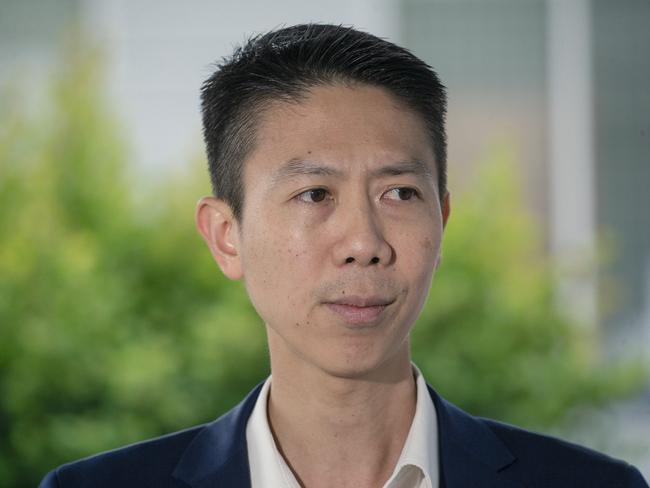Covid, flu Qld: Onslaught of viruses cruelling blood donations
As Queensland stares down a horror flu and Covid-19 season, the impact is being felt in another vulnerable sector of the health system.

Lifestyle
Don't miss out on the headlines from Lifestyle. Followed categories will be added to My News.
Blood donors are pulling out of their scheduled appointments at unprecedented rates due to the impact of cold and flu leaving stocks of the most in-demand blood type dangerously low.
So Queensland emergency services heroes are leading the way and rolling up their sleeves to help refill supplies.
Health Minister Tim Nicholls is calling for Queenslanders to step up and follow the lead of the fire, ambulance, police, SES and LifeFlight personnel to donate crucial blood and plasma.
He donated himself on Wednesday.
The emergency services are taking part in the Australian Red Cross Lifeblood Emergency Services Blood Drive.
“From patients facing cancer, to those undergoing heart surgery and those who have suffered severe burns — there are many situations and conditions that require blood and plasma donations,” Mr Nicholls said.
“I encourage as many Queenslanders as possible to roll up their sleeves and donate to the lifesaving Australian Red Cross Lifeblood Emergency Services Blood Drive.”
Type-O blood stocks are at the lowest level since October 2023.
As demand for all types of blood and plasma continues to increase at record levels, Lifeblood spokeswoman Belinda Smetioukh said that every day close to 10,000 blood products and medications were sent to hospitals around the country to meet patient demand.
A blood appointment takes about an hour, with the donation itself lasting up to 10 minutes, and blood can be donated every three months.

A plasma appointment takes about hour and a half, with 40 minutes in the donor chair, and donations of plasma can be made every fortnight.
It came as Covid-19 cases nearly cracked the 1000 mark last week in Queensland, with experts warning respiratory condition numbers would continue to surge.
Queensland Health reported 977 Covid-19 cases, 873 respiratory syncytial virus and 1234 influenza cases last week.
Mater director of infectious diseases Professor Paul Griffin said it was very likely cases would rise across the state.
“When you also factor in high levels of RSV and flu already, that is going to be a bit of a challenge for us to manage over the coming months,” Professor Griffin said.
AMAQ president Nick Yim said the state was at risk of a very bad flu season, with infections already trending above where they were in 2024.
“Older Queenslanders and the very young at most at risk from influenza, but even those in general good health can be seriously affected, so we urge everyone to see their GP for their free flu shot,” Dr Yim said.
“If you were vaccinated against the flu last year, you do need to get it again in 2025, as each vaccine protects you from the most recent strain of the disease.”
Dr Yim also stressed the importance of keeping up to date with Covid-19 boosters, as the new strain, NB. 1.8.1, circulates across the nation.
“The evidence so far suggests that this latest strain of Covid may spread more easily and partially sidestep immunity from prior infections or vaccination, making it even more important for people to get their booster,” he said.




